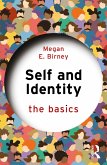Human Rights Education for Psychologists (eBook, ePUB)
Redaktion: Hagenaars, Polli; Wainwright, Tony; Wagner, Ulrich; Sveaass, Nora; Plavsic, Marlena
39,95 €
39,95 €
inkl. MwSt.
Sofort per Download lieferbar

20 °P sammeln
39,95 €
Als Download kaufen

39,95 €
inkl. MwSt.
Sofort per Download lieferbar

20 °P sammeln
Jetzt verschenken
Alle Infos zum eBook verschenken
39,95 €
inkl. MwSt.
Sofort per Download lieferbar
Alle Infos zum eBook verschenken

20 °P sammeln
Human Rights Education for Psychologists (eBook, ePUB)
Redaktion: Hagenaars, Polli; Wainwright, Tony; Wagner, Ulrich; Sveaass, Nora; Plavsic, Marlena
- Format: ePub
- Merkliste
- Auf die Merkliste
- Bewerten Bewerten
- Teilen
- Produkt teilen
- Produkterinnerung
- Produkterinnerung

Bitte loggen Sie sich zunächst in Ihr Kundenkonto ein oder registrieren Sie sich bei
bücher.de, um das eBook-Abo tolino select nutzen zu können.
Hier können Sie sich einloggen
Hier können Sie sich einloggen
Sie sind bereits eingeloggt. Klicken Sie auf 2. tolino select Abo, um fortzufahren.

Bitte loggen Sie sich zunächst in Ihr Kundenkonto ein oder registrieren Sie sich bei bücher.de, um das eBook-Abo tolino select nutzen zu können.
This book is designed to raise awareness of human rights implications in psychology, and provide knowledge and tools enabling psychologists to put a human rights perspective into practice. It is essential reading for professional psychologists as part of continuing professional development and those in training and taking psychology courses.
- Geräte: eReader
- mit Kopierschutz
- eBook Hilfe
Andere Kunden interessierten sich auch für
![Human Rights Education for Psychologists (eBook, PDF) Human Rights Education for Psychologists (eBook, PDF)]() Human Rights Education for Psychologists (eBook, PDF)39,95 €
Human Rights Education for Psychologists (eBook, PDF)39,95 €![Prejudice, Identity and Well-Being (eBook, ePUB) Prejudice, Identity and Well-Being (eBook, ePUB)]() Charles T. HillPrejudice, Identity and Well-Being (eBook, ePUB)47,95 €
Charles T. HillPrejudice, Identity and Well-Being (eBook, ePUB)47,95 €![Innovative Stigma and Discrimination Reduction Programs Across the World (eBook, ePUB) Innovative Stigma and Discrimination Reduction Programs Across the World (eBook, ePUB)]() Innovative Stigma and Discrimination Reduction Programs Across the World (eBook, ePUB)49,95 €
Innovative Stigma and Discrimination Reduction Programs Across the World (eBook, ePUB)49,95 €![The Psychology of Politically Unstable Societies (eBook, ePUB) The Psychology of Politically Unstable Societies (eBook, ePUB)]() The Psychology of Politically Unstable Societies (eBook, ePUB)39,95 €
The Psychology of Politically Unstable Societies (eBook, ePUB)39,95 €![Social Psychology for Foundation Year (eBook, ePUB) Social Psychology for Foundation Year (eBook, ePUB)]() Wendy GarnhamSocial Psychology for Foundation Year (eBook, ePUB)44,95 €
Wendy GarnhamSocial Psychology for Foundation Year (eBook, ePUB)44,95 €![Practical Social Justice (eBook, ePUB) Practical Social Justice (eBook, ePUB)]() Practical Social Justice (eBook, ePUB)30,95 €
Practical Social Justice (eBook, ePUB)30,95 €![Self and Identity (eBook, ePUB) Self and Identity (eBook, ePUB)]() Megan E. BirneySelf and Identity (eBook, ePUB)17,95 €
Megan E. BirneySelf and Identity (eBook, ePUB)17,95 €-
-
-
This book is designed to raise awareness of human rights implications in psychology, and provide knowledge and tools enabling psychologists to put a human rights perspective into practice. It is essential reading for professional psychologists as part of continuing professional development and those in training and taking psychology courses.
Dieser Download kann aus rechtlichen Gründen nur mit Rechnungsadresse in A, B, BG, CY, CZ, D, DK, EW, E, FIN, F, GR, HR, H, IRL, I, LT, L, LR, M, NL, PL, P, R, S, SLO, SK ausgeliefert werden.
Produktdetails
- Produktdetails
- Verlag: Taylor & Francis eBooks
- Seitenzahl: 316
- Erscheinungstermin: 12. März 2020
- Englisch
- ISBN-13: 9781000041309
- Artikelnr.: 58797615
- Verlag: Taylor & Francis eBooks
- Seitenzahl: 316
- Erscheinungstermin: 12. März 2020
- Englisch
- ISBN-13: 9781000041309
- Artikelnr.: 58797615
- Herstellerkennzeichnung Die Herstellerinformationen sind derzeit nicht verfügbar.
Polli Hagenaars is a licensed psychotherapist and trainer for diversity policy with her own institute, C5, in Amsterdam, The Netherlands. Diversity and non-discrimination have been major themes throughout her professional career, including combating racism in the educational system, and teaching transcultural pedagogy at university colleges. Marlena Plavi¿ started her psychological career dealing with the consequences of human rights violations while working with refugees and displaced persons from Croatia and Bosnia and Herzegovina in the 1990s. She teaches at the Juraj Dobrila University of Pula, Croatia and takes part in various community projects. Nora Sveaass is professor emerita at the University of Oslo, Norway with research focusing on refugees, rehabilitation of victims of torture and transitional justice. She was Chair of the Human Rights Committee in the Norwegian Psychological Association from 1998 to 2018 and currently is a member of the United Nations Subcommittee for the Prevention of Torture. Ulrich Wagner is a professor emeritus of social psychology at the Philipps-University Marburg in Germany. His research focuses on the improvement of intergroup relations. It is especially concerned with the reduction of ethnic prejudice, discrimination and violence as well as the promotion of intergroup acceptance and tolerance. Tony Wainwright is a clinical psychologist and senior lecturer at the University of Exeter, UK. His research interests are ethics, human rights, climate change and psychology. He is concerned with the effect that human activity has environmentally, and its impact on human rights and the lives of the plants and animals with which we share the world.
Foreword
Preface
Glossary
Part I: A human rights based-and-oriented psychology
Chapter 1. The Universal Declaration of Human Rights: Foundations for a human rights based-and-oriented psychology Polli Hagenaars and Ava Thompson
Chapter 2. Human rights: how do they matter for the profession of psychology? Nora Sveaass and Michael Wessells
Chapter 3. Main human rights instruments and bodies, relevant for psychologists' interventions Manfred Nowak and Anna Zenz
Chapter 4. Human Rights: Cross-national and cross-cultural perspectives Rama Charan Tripathi
Chapter 5. Critical human rights-based approach to applied psychology: Context and power Nimisha Patel
Part II: Psychology and social accountability
Chapter 6. Human rights and professional identity George Ulrich and Tony Wainwright
Chapter 7. Use and misuse of psychological science, knowledge and research Tony Wainwright and Giovanna Leone
Chapter 8. Playing together: Children's human rights and psychology Kerstin Söderström and Ragnhild Dybdahl
Chapter 9. Human rights in business and employment: Promoting the right to decent work Kathleen Otto, Martin Mabunda Baluku, Ulrike Fasbender and Ute-Christine Klehe
Chapter 10. Social accountability and action orientation: strengthening the policy making capacity of psychologists Elizabeth Lira
Part III: Human rights and professional practice
Chapter 11. Universal human rights: except for some Paul D'Alton
Chapter 12. The Convention on the Rights of Persons with Disabilities and the challenge to treatment without consent of individuals with psychosocial disabilities Bernadette McSherry and Lisa Waddington
Chapter 13. Forced migration: psychological contributions that might help to improve the human rights situation Ulrich Wagner
Chapter 14. Indigenous communities facing environmental racism: Human rights, resilience, and resistance in Palestinian communities of the West Bank and the Mapuche of Chile Devin G. Atallah and Michael Ungar
Chapter 15. Torture and the role of the psychological profession Pau Pérez-Sales and Nora Sveaass
Chapter 16. Gender and war: Bosnian psychologists dealing with conflict related sexual violence during and after war Inger Skjelsbæk
Part IV: Human rights educational practice for psychologists
Chapter 17. Core competences for psychologists practicing human rights-based approaches Marlena Plavsic, Tony Wainwright and Artemis Giotsa
Chapter 18. Planning human rights education for psychologists Felisa Tibbitts and Polli Hagenaars
Chapter 19. Stories of human rights: teaching and learning Sarah Butchard, Tommy Dunne, Hilda Engel and Artemis Giotsa
Postscript
Preface
Glossary
Part I: A human rights based-and-oriented psychology
Chapter 1. The Universal Declaration of Human Rights: Foundations for a human rights based-and-oriented psychology Polli Hagenaars and Ava Thompson
Chapter 2. Human rights: how do they matter for the profession of psychology? Nora Sveaass and Michael Wessells
Chapter 3. Main human rights instruments and bodies, relevant for psychologists' interventions Manfred Nowak and Anna Zenz
Chapter 4. Human Rights: Cross-national and cross-cultural perspectives Rama Charan Tripathi
Chapter 5. Critical human rights-based approach to applied psychology: Context and power Nimisha Patel
Part II: Psychology and social accountability
Chapter 6. Human rights and professional identity George Ulrich and Tony Wainwright
Chapter 7. Use and misuse of psychological science, knowledge and research Tony Wainwright and Giovanna Leone
Chapter 8. Playing together: Children's human rights and psychology Kerstin Söderström and Ragnhild Dybdahl
Chapter 9. Human rights in business and employment: Promoting the right to decent work Kathleen Otto, Martin Mabunda Baluku, Ulrike Fasbender and Ute-Christine Klehe
Chapter 10. Social accountability and action orientation: strengthening the policy making capacity of psychologists Elizabeth Lira
Part III: Human rights and professional practice
Chapter 11. Universal human rights: except for some Paul D'Alton
Chapter 12. The Convention on the Rights of Persons with Disabilities and the challenge to treatment without consent of individuals with psychosocial disabilities Bernadette McSherry and Lisa Waddington
Chapter 13. Forced migration: psychological contributions that might help to improve the human rights situation Ulrich Wagner
Chapter 14. Indigenous communities facing environmental racism: Human rights, resilience, and resistance in Palestinian communities of the West Bank and the Mapuche of Chile Devin G. Atallah and Michael Ungar
Chapter 15. Torture and the role of the psychological profession Pau Pérez-Sales and Nora Sveaass
Chapter 16. Gender and war: Bosnian psychologists dealing with conflict related sexual violence during and after war Inger Skjelsbæk
Part IV: Human rights educational practice for psychologists
Chapter 17. Core competences for psychologists practicing human rights-based approaches Marlena Plavsic, Tony Wainwright and Artemis Giotsa
Chapter 18. Planning human rights education for psychologists Felisa Tibbitts and Polli Hagenaars
Chapter 19. Stories of human rights: teaching and learning Sarah Butchard, Tommy Dunne, Hilda Engel and Artemis Giotsa
Postscript
Foreword
Preface
Glossary
Part I: A human rights based-and-oriented psychology
Chapter 1. The Universal Declaration of Human Rights: Foundations for a human rights based-and-oriented psychology Polli Hagenaars and Ava Thompson
Chapter 2. Human rights: how do they matter for the profession of psychology? Nora Sveaass and Michael Wessells
Chapter 3. Main human rights instruments and bodies, relevant for psychologists' interventions Manfred Nowak and Anna Zenz
Chapter 4. Human Rights: Cross-national and cross-cultural perspectives Rama Charan Tripathi
Chapter 5. Critical human rights-based approach to applied psychology: Context and power Nimisha Patel
Part II: Psychology and social accountability
Chapter 6. Human rights and professional identity George Ulrich and Tony Wainwright
Chapter 7. Use and misuse of psychological science, knowledge and research Tony Wainwright and Giovanna Leone
Chapter 8. Playing together: Children's human rights and psychology Kerstin Söderström and Ragnhild Dybdahl
Chapter 9. Human rights in business and employment: Promoting the right to decent work Kathleen Otto, Martin Mabunda Baluku, Ulrike Fasbender and Ute-Christine Klehe
Chapter 10. Social accountability and action orientation: strengthening the policy making capacity of psychologists Elizabeth Lira
Part III: Human rights and professional practice
Chapter 11. Universal human rights: except for some Paul D'Alton
Chapter 12. The Convention on the Rights of Persons with Disabilities and the challenge to treatment without consent of individuals with psychosocial disabilities Bernadette McSherry and Lisa Waddington
Chapter 13. Forced migration: psychological contributions that might help to improve the human rights situation Ulrich Wagner
Chapter 14. Indigenous communities facing environmental racism: Human rights, resilience, and resistance in Palestinian communities of the West Bank and the Mapuche of Chile Devin G. Atallah and Michael Ungar
Chapter 15. Torture and the role of the psychological profession Pau Pérez-Sales and Nora Sveaass
Chapter 16. Gender and war: Bosnian psychologists dealing with conflict related sexual violence during and after war Inger Skjelsbæk
Part IV: Human rights educational practice for psychologists
Chapter 17. Core competences for psychologists practicing human rights-based approaches Marlena Plavsic, Tony Wainwright and Artemis Giotsa
Chapter 18. Planning human rights education for psychologists Felisa Tibbitts and Polli Hagenaars
Chapter 19. Stories of human rights: teaching and learning Sarah Butchard, Tommy Dunne, Hilda Engel and Artemis Giotsa
Postscript
Preface
Glossary
Part I: A human rights based-and-oriented psychology
Chapter 1. The Universal Declaration of Human Rights: Foundations for a human rights based-and-oriented psychology Polli Hagenaars and Ava Thompson
Chapter 2. Human rights: how do they matter for the profession of psychology? Nora Sveaass and Michael Wessells
Chapter 3. Main human rights instruments and bodies, relevant for psychologists' interventions Manfred Nowak and Anna Zenz
Chapter 4. Human Rights: Cross-national and cross-cultural perspectives Rama Charan Tripathi
Chapter 5. Critical human rights-based approach to applied psychology: Context and power Nimisha Patel
Part II: Psychology and social accountability
Chapter 6. Human rights and professional identity George Ulrich and Tony Wainwright
Chapter 7. Use and misuse of psychological science, knowledge and research Tony Wainwright and Giovanna Leone
Chapter 8. Playing together: Children's human rights and psychology Kerstin Söderström and Ragnhild Dybdahl
Chapter 9. Human rights in business and employment: Promoting the right to decent work Kathleen Otto, Martin Mabunda Baluku, Ulrike Fasbender and Ute-Christine Klehe
Chapter 10. Social accountability and action orientation: strengthening the policy making capacity of psychologists Elizabeth Lira
Part III: Human rights and professional practice
Chapter 11. Universal human rights: except for some Paul D'Alton
Chapter 12. The Convention on the Rights of Persons with Disabilities and the challenge to treatment without consent of individuals with psychosocial disabilities Bernadette McSherry and Lisa Waddington
Chapter 13. Forced migration: psychological contributions that might help to improve the human rights situation Ulrich Wagner
Chapter 14. Indigenous communities facing environmental racism: Human rights, resilience, and resistance in Palestinian communities of the West Bank and the Mapuche of Chile Devin G. Atallah and Michael Ungar
Chapter 15. Torture and the role of the psychological profession Pau Pérez-Sales and Nora Sveaass
Chapter 16. Gender and war: Bosnian psychologists dealing with conflict related sexual violence during and after war Inger Skjelsbæk
Part IV: Human rights educational practice for psychologists
Chapter 17. Core competences for psychologists practicing human rights-based approaches Marlena Plavsic, Tony Wainwright and Artemis Giotsa
Chapter 18. Planning human rights education for psychologists Felisa Tibbitts and Polli Hagenaars
Chapter 19. Stories of human rights: teaching and learning Sarah Butchard, Tommy Dunne, Hilda Engel and Artemis Giotsa
Postscript







